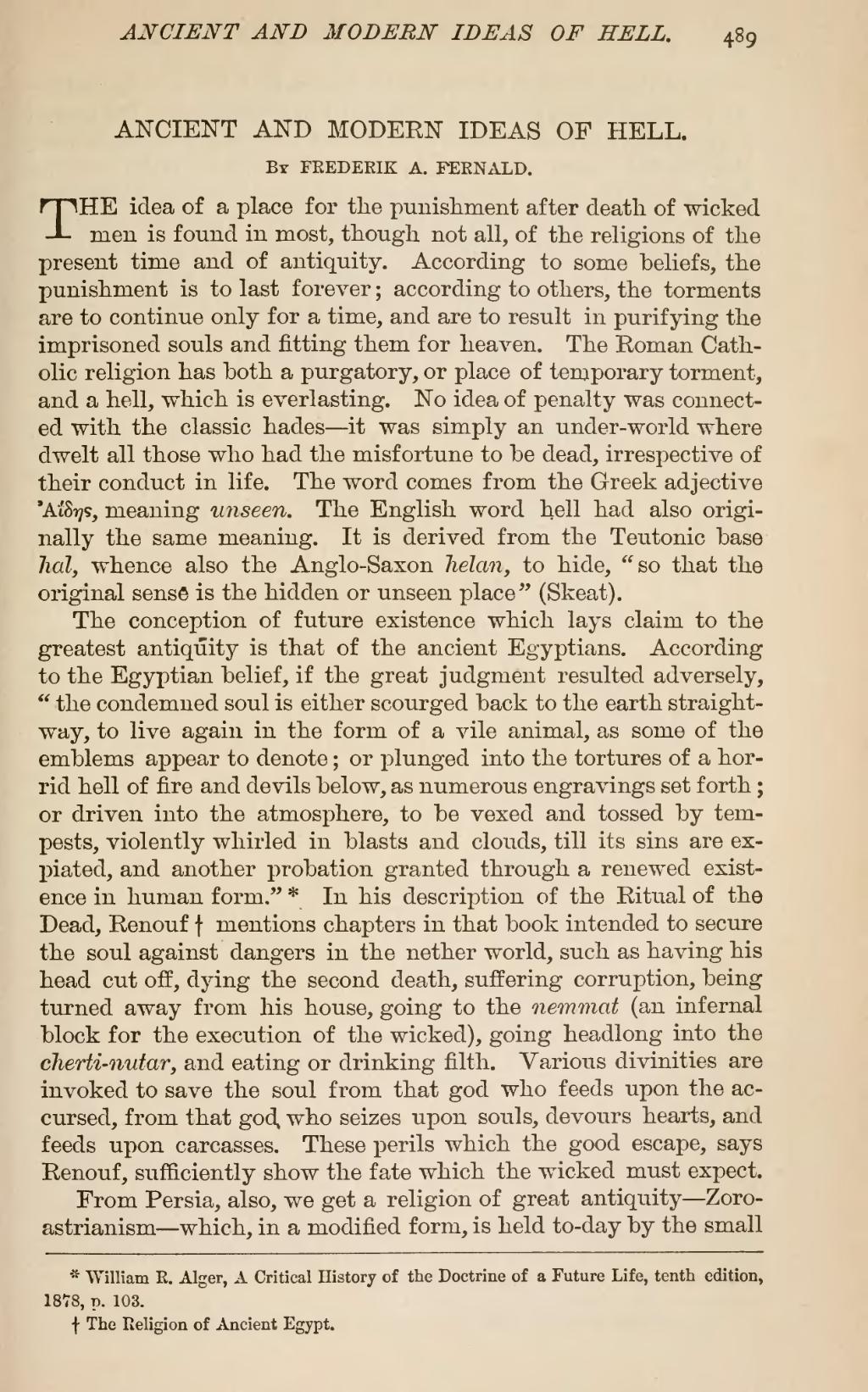| ANCIENT AND MODERN IDEAS OF HELL. |
By FREDERIK A. FERNALD.
THE idea of a place for the punishment after death of wicked men is found in most, though not all, of the religions of the present time and of antiquity. According to some beliefs, the punishment is to last forever; according to others, the torments are to continue only for a time, and are to result in purifying the imprisoned souls and fitting them for heaven. The Roman Catholic religion has both a purgatory, or place of temporary torment, and a hell, which is everlasting. No idea of penalty was connected with the classic hades—it was simply an under-world where dwelt all those who had the misfortune to be dead, irrespective of their conduct in life. The word comes from the Greek adjective Άἶζης, meaning unseen. The English word hell had also originally the same meaning. It is derived from the Teutonic base hal, whence also the Anglo-Saxon helan, to hide, "so that the original sense is the hidden or unseen place" (Skeat).
The conception of future existence which lays claim to the greatest antiquity is that of the ancient Egyptians. According to the Egyptian belief, if the great judgment resulted adversely, "the condemned soul is either scourged back to the earth straightway, to live again in the form of a vile animal, as some of the emblems appear to denote; or plunged into the tortures of a horrid hell of fire and devils below, as numerous engravings set forth; or driven into the atmosphere, to be vexed and tossed by tempests, violently whirled in blasts and clouds, till its sins are expiated, and another probation granted through a renewed existence in human form,"[1] In his description of the Ritual of the Dead, Renouf[2] mentions chapters in that book intended to secure the soul against dangers in the nether world, such as having his head cut off, dying the second death, suffering corruption, being turned away from his house, going to the nemmat (an infernal block for the execution of the wicked), going headlong into the cherti-nutar, and eating or drinking filth. Various divinities are invoked to save the soul from that god who feeds upon the accursed, from that god, who seizes upon souls, devours hearts, and feeds upon carcasses. These perils which the good escape, says Renouf, sufficiently show the fate which the wicked must expect. From Persia, also, we get a religion of great antiquity—Zoroastrianism—which, in a modified form, is held to-day by the small

